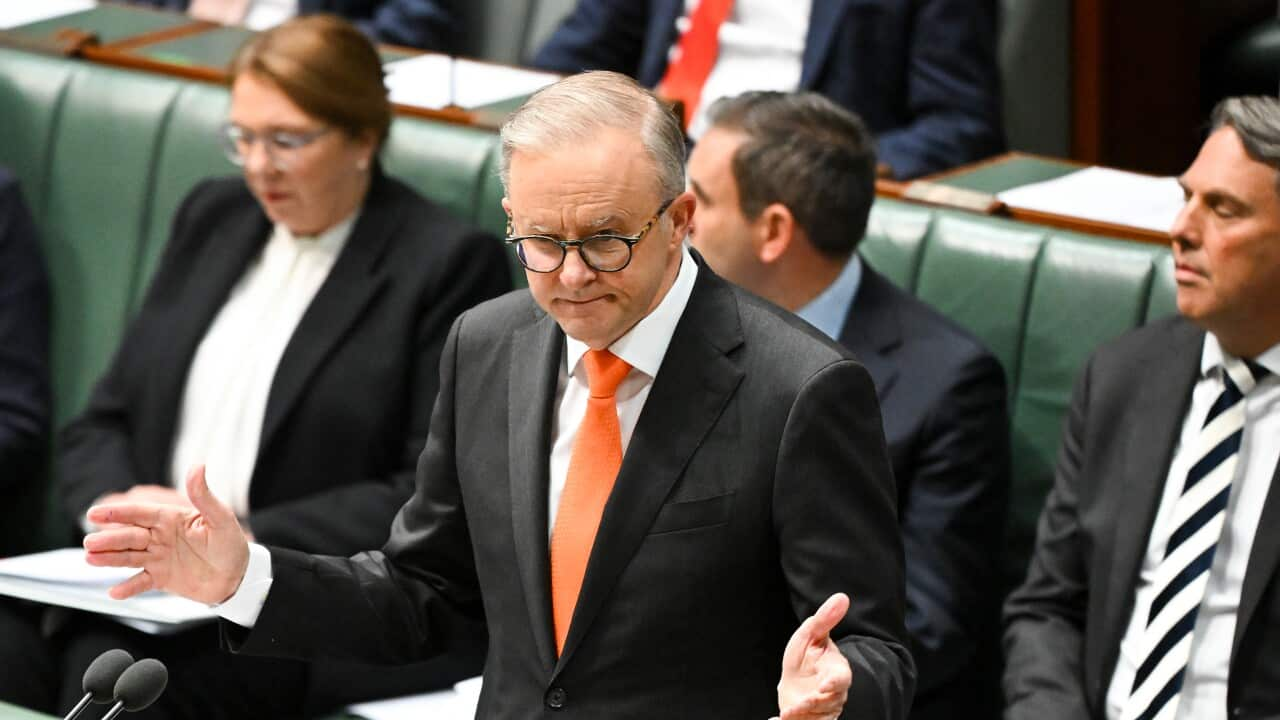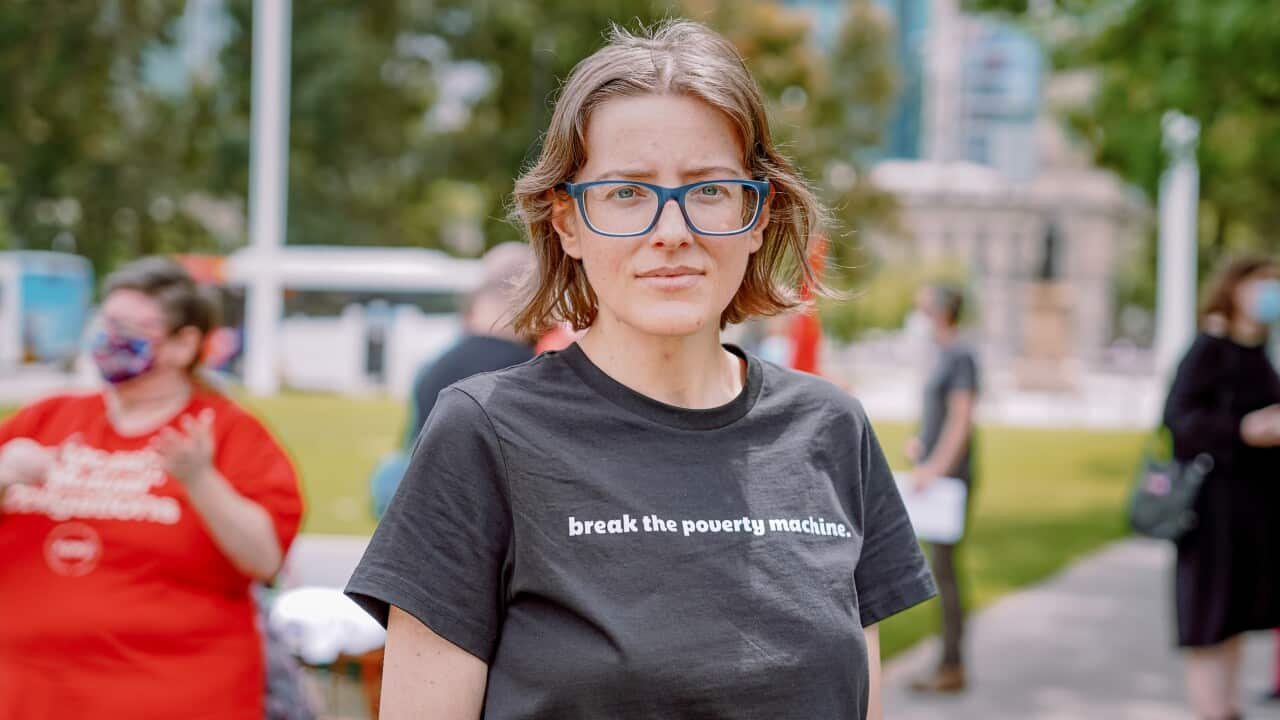Key Points
- Department of Finance figures show the federal budget will return a $19 billion surplus.
- The figure is far higher than first predicted.
- The surplus has come from high tax revenue from workers and high commodity prices.
Australia's financial books are on track to record a far higher than expected budget surplus of around $19 billion, Department of Finance figures show.
It's largely due to tax from commodity prices that have remained high for longer than expected, and a surprising amount of tax paid by workers, as the country enjoys record .
Prime Minister Anthony Albanese said his government had worked to turn a deficit into a surplus for the 2022/23 financial year.
"The fact that we've turned a $78 billion deficit that was forecast under the Liberal National Party government just over a year ago into a surplus that's in excess of $4 billion is a positive thing," Mr Albanese said.
"I believe that Australian families will look at the federal budget and say it is good that we have a government that is putting in place responsible budget management in order to put that downward pressure on inflation."
But Opposition leader Peter Dutton says the federal government cannot "credibly take credit" for what could be the largest budget surplus ever delivered.
Some economists still expect the government to run into a deficit in coming years as revenue 'rivers of gold' dry up and spending on promised policies increases.
But with Australians grinding through a , many would be wondering how the money could be used, even if Labor is unlikely to inject it into any one stream at once.
Cost of living relief
With , more and more people are finding it impossible to , including those on minimum wage or welfare payments.
The federal government announced a cost of living package adding up to more than $14 billion over four years in its May budget, which included energy and child care relief and support for medical patients.
But the government was criticised for only raising the JobSeeker, Youth Allowance and Austudy welfare payments by $2.85 a day, which was far below what advocates had recommended.
The Economic Inclusion Advisory Committee, a government body that independently advises the Department of Social Services, said at the time the JobSeeker payment needs to rise by at least $128 per week to ensure people could cover the basics.
JobSeeker was still one of the lowest unemployment payments in the OECD (a group of 38 countries with advanced economies), despite Australia being one of the wealthiest countries in the world, Australian Council of Social Service chief Cassandra Goldie said in May.
Treasurer Jim Chalmers says the budget surplus does not come at the “expense” of cost of living assistance for Australians.
“By getting the budget in much better nick than what we inherited, it means we can provide that $15 billion in cost of living help to take some of the edge off these pressures without adding to inflation,” he told Sky News last week, though he appeared to be referring to the cost of living package already announced in the May budget.
More support for Ukraine
The Ukrainian ambassador to Australia, , used an interview with the ABC on Sunday to suggest Australia had benefited indirectly from Russia's war with Ukraine and could further help his country.
“Many of our partners have inadvertently benefited from the increased prices for commodities, and, of course, this is all the result of the Russian invasion of Ukraine,” he said.
“Countries like Canada, Norway, Australia – the increased prices for commodities have really done well for their budgets and the surplus of their budgets, and we’ll see how these countries are stepping up their support.”
Last week, Mr Albanese revealed an extra $110 million package to fund Ukraine's ongoing efforts to repel Russia's invasion, taking Australia's total outlay since the war started to nearly $800 million.
The package will include 70 military vehicles - including 28 armoured trucks and 14 special operations vehicles - along with $10 million to the United Nations to coordinate humanitarian efforts.
But it does not include additional Bushmaster or Hawkei vehicles, both of which Kyiv has specifically requested.
Mr Dutton said Australia should "get on with it" and provide the support that's been asked for.
, University of Tasmania lecturer Professor James Dwyer suggested Australia could offer a fleet of 41 retired fighter jets.
Rent relief and social housing
The Labor government has been trying to get a major housing bill through parliament but has .
The Housing Australia Future Fund (HAFF) would invest $10 billion into a future fund, with the proceeds funding the construction of social and affordable homes. Initially, Labor said that could rise to $500 million each year.
Labor says HAFF would build 30,000 homes over five years.
But the Greens insist Labor's plan provides inadequate funding and still does nothing for renters, who fill roughly a third of properties.
Greens housing spokesperson Max Chandler-Mather has implied the budget surplus should be directed towards beefing up the housing bill.
"So the federal budget surplus is now $19bn. All the Greens are asking for is $2.5 billion a year for public housing and $1 billion a year to incentivise a freeze and cap on rent increases," he wrote on Twitter.
NDIS reform
As the National Disability Insurance Scheme (NDIS) marks its 10-year anniversary, it's being reviewed by an independent panel that is looking at how to keep the scheme sustainable.
But NDIS recipients and activists are afraid their disability support will be axed following the government's announcement of a "sustainable growth limit" in April, which many interpreted as a cap on funding.
Providers have said the NDIS needs to have a more skilled workforce administering it and needs to cut down on wait times, NDIS training organisation Developing Australian Communities said on Monday.
The NDIS is on track to be one of the budget's biggest expenses as projections show the scheme will cost more than $50 billion by 2025/26, overtaking annual costs for Medicare.
NDIS Minister Bill Shorten has vowed to instigate serious reforms to ensure it continues to meet people's needs long-term and put Australians living with a disability at its centre.
With additional reporting by AAP.













